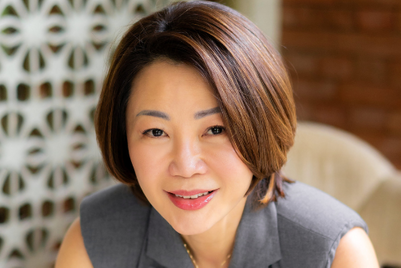
The news of the coronavirus outbreak has cast an unexpected shadow over this Chinese New Year. And as Chinese shoppers alter their travel plans and stay at home to avoid infection, many luxury market players—including luxury groups, Chinese brands, and e-commerce companies—have decided to make generous contributions.
The international luxury group LVMH, a frequent donor to global issues like the Notre Dame Cathedral restoration and the Amazon rainforest, has stepped up once again by announcing on January 27 that they would donate nearly $2.3 million (16 million RMB) to the Chinese Red Cross Foundation to help with a medical supplies shortage in Wuhan. The group also helped to gather much-needed supplies for China from France and throughout Europe with the assistance of the Red Cross. This news was shared by many LVMH employees in China and garnered positive reactions from fashion insiders.

LVMH’s rival luxury group Kering also recently posted a donation of $1.1 million (7.5 million RMB) to the Red Cross in the heavily impacted province of Hubei. The donation will be used for front-line prevention and control work (including care for hospital medical staff and patients) as well as training and public health education. In the meantime, international beauty groups like L’Oréal and Estée Lauder pledged $720,000 (5 million RMB) and $300,000 (2 million RMB) respectively to help China to fight the virus.
A lot of Chinese companies also took many different proactive approaches. Tech giant Alibaba leveraged Alibaba Health (the company’s health care arm) as a telemedicine center which patients can access on their Alipay and Taobao app and has also blocked vendors from jacking up prices on facial masks and other health care and cleaning supplies. Elsewhere, smaller Chinese brands crafted purposeful and caring messages for their fans. Beauty brand Perfect Diary is broadcasting safety recommendations, and intimate wear company Neiwai posted a message reminding their fans to stay healthy and strong on WeChat.
From big donations to small messages, brands chose to be sensitive to their consumers during this crisis rather than push out promotional messages. “I personally find it tone-deaf to push coupons or remain silent during these times of crisis,” said Dao Nguyen, founder of Essenzia, a consultancy for beauty and fragrance marketing strategy in China. “I am not sure if this is a lack of awareness or reactivity?”
In return, fans responded positively to brands’ heartfelt messages. “What Perfect Diary did is quite moving, they are the first brand I saw publish any safety guide for their fans,” commented one WeChat user named Aaliyah. “No wonder Estee Lauder is my favorite brand,” wrote Annabelle Du under the group’s donation announcement. These are the kinds of organic, positive impressions that can’t be bought with a marketing budget or advertising money. “Generating ’emotional engagement’ goes both ways,” stated Nguyen. “In troubled times like this, brands who are able to promptly voice support and act on it demonstrate sincere empathy and care. It can go a long way to fuel mutual understanding and bonding.”’
As many brands offer support to the front lines of this virus fight, one New York City-based luxury brand that attempted to make a contribution expressed just how difficult it is to navigate the complicated donation routes in China. “Many hospitals in Wuhan face an urgent shortage of medical supplies, so those donations are more helpful than handing in money,” said a Chinese member of the brand’s staff. According to the latest report from Chinese media outlet Caixin Global, Chinese officials addressed such shortages and announced that, despite efforts to increase production, China’s output of protective medical gear is still only at 40 percent capacity and is in dire need of replenishment.
According to a few anonymous private donors, the Chinese government is currently overseeing the production of medical supplies to ensure fast delivery to hospitals in need, making it difficult for any brands to purchase these supplies within China. Many have turned to overseas hospitals and institutions for supplies and e-commerce companies for logistics. However, even if donations are delivered, they still might not be helpful. “We saw a lot of medical donations coming in, but they aren’t up to our medical standards,” said one employee from Wuhan Jinyintang hospital. That’s why many companies opt to work with reputable organizations like the Red Cross to deliver their donations.
With a fast-rising jump in the death toll, many anxious citizens are trapped at home, scrambling to cope with the fast-spreading virus. In a difficult time like this, brands’ attempts to respond accordingly is good news and shows respect and care for the Chinese market they work in. “This level of awareness is awesome,” concluded Nguyen. “It helps build a global network where the situation isn’t reduced to a ‘Chinese’ crisis.”




.jpg&h=334&w=500&q=100&v=20250320&c=1)


.jpg&h=334&w=500&q=100&v=20250320&c=1)


.jpg&h=334&w=500&q=100&v=20250320&c=1)






.png&h=268&w=401&q=100&v=20250320&c=1)

.jpg&h=268&w=401&q=100&v=20250320&c=1)
